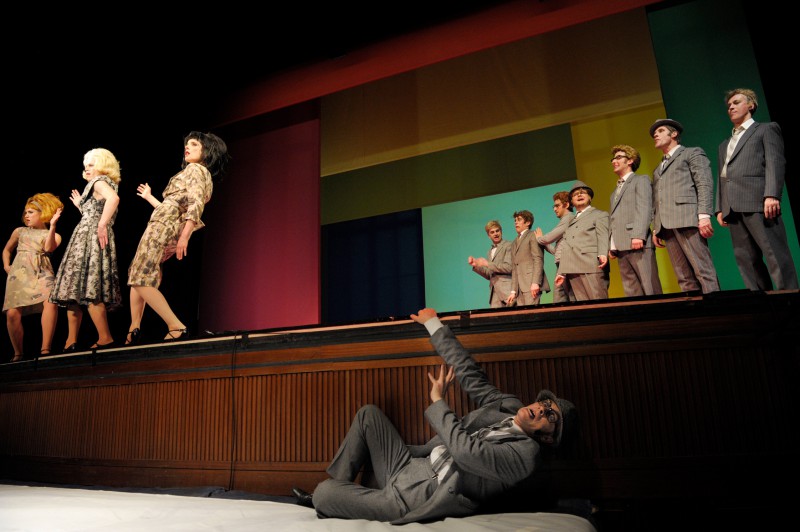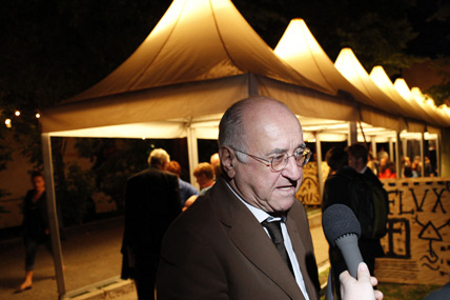Rumour has had it that German humour is a mythical creature much like the unicorn, the centaur, or American gun control. The all-knowing God of Stereotypes has declared that The Germans are to be efficient but without humour.
Which, like all stereotypes, doesn’t exactly reflect reality. German humour not only exists, it’s thriving – according to the overly-defensive Wikipedia entry in English and Danish (?!). Granted, humour is extremely culturally dependent. As a foreigner, even when your language skills are flawless and you theoretically understand why Loriot is funny, it’s actually laughing at Helge Schneider or Kurt Krömer that shows you’re truly, irretrievably integrated (There’s an idea for your boring, answer lists of questions citizenship test).
Contrary to my expectations – as influenced by my colleague’s review – I laughed out loud multiple times at Murmel Murmel (next performance during TT on the 12th of May). And it wasn’t just because the concept – one word over and over – is so ridiculous that there’s really no other suitable response (see TTtv for more Murmeling). Nor was it just when a man sitting to my right said “Was für ein Text ist das?” (What kind of a text is this?), 54.4 minutes into the piece. Or when a woman behind me, unable to contain herself anymore, shouted “Murmel!” at the stage, and was quickly scolded with „Nicht vorhersagen“ (Don’t jump the gun).

Oh no! He’s fallen! But it’s ok, there was a mattress there all along… Scene from Herbert Fritsch’s „Murmel Murmel“. Photo: Thomas Aurin
And while slapstick comedy dominated the evening, I mostly laughed at moments of the absurd and of Schadenfreude. The running gag through the 80 minutes were repetitive pitfalls (and I mean pitfall literally, an actor actually fell into the orchestra pit.) And we, both Americans and Germans, laugh at other people’s misfortune, when we’re in a context where it’s safe to laugh about it – i.e. when the person in question is Paris Hilton, and not when it’s Nelson Mandela, or when the pitfall is onto a mattress and not resulting in multiple broken bones.
The kind of humour that’s less my taste, exaggerated characters and physical comedy that obviously signal FUNNY, showed up both in Murmel Murmel and Every Man Dies Alone. Laughter is at its best when it’s a spontaneous reaction, so when capital letters telegraph YOU WILL LAUGH, I tend to respond with a kind of choked chuckle of discomfort.
Every Man Dies Alone desperately needs the little humour that’s there – it’s pretty obvious from the title that there’s no real happy ending to this controversial text. And moments of comic relief, or Lachinseln (laugh islands) in German, can integrate well into an overall dramatic arc. What made them so problematic for me in Every Man is that half the time they consisted of Nazis presented as “funny characters,” ranging from an alcoholic bum informant to a troupe of brown shirts with Hitler moustaches to an incompetent Gestapo investigator.

Last night, on the Nazi Laugh Islands: Brown shirt clowns with Hitler moustaches. A scene from „Every Man Dies Alone“ by director Luk Perceval. Photo: Krafft-Angerer
And I know this is part of Germany dealing with its history, but I still can’t bring myself to laugh at “silly, stupid Nazis” in the context of a theatre piece addressing failed resistance to the NS regime.
Now if those Nazis fell into the pit while mumbling “Murmel Murmel“, that might be a different story.
